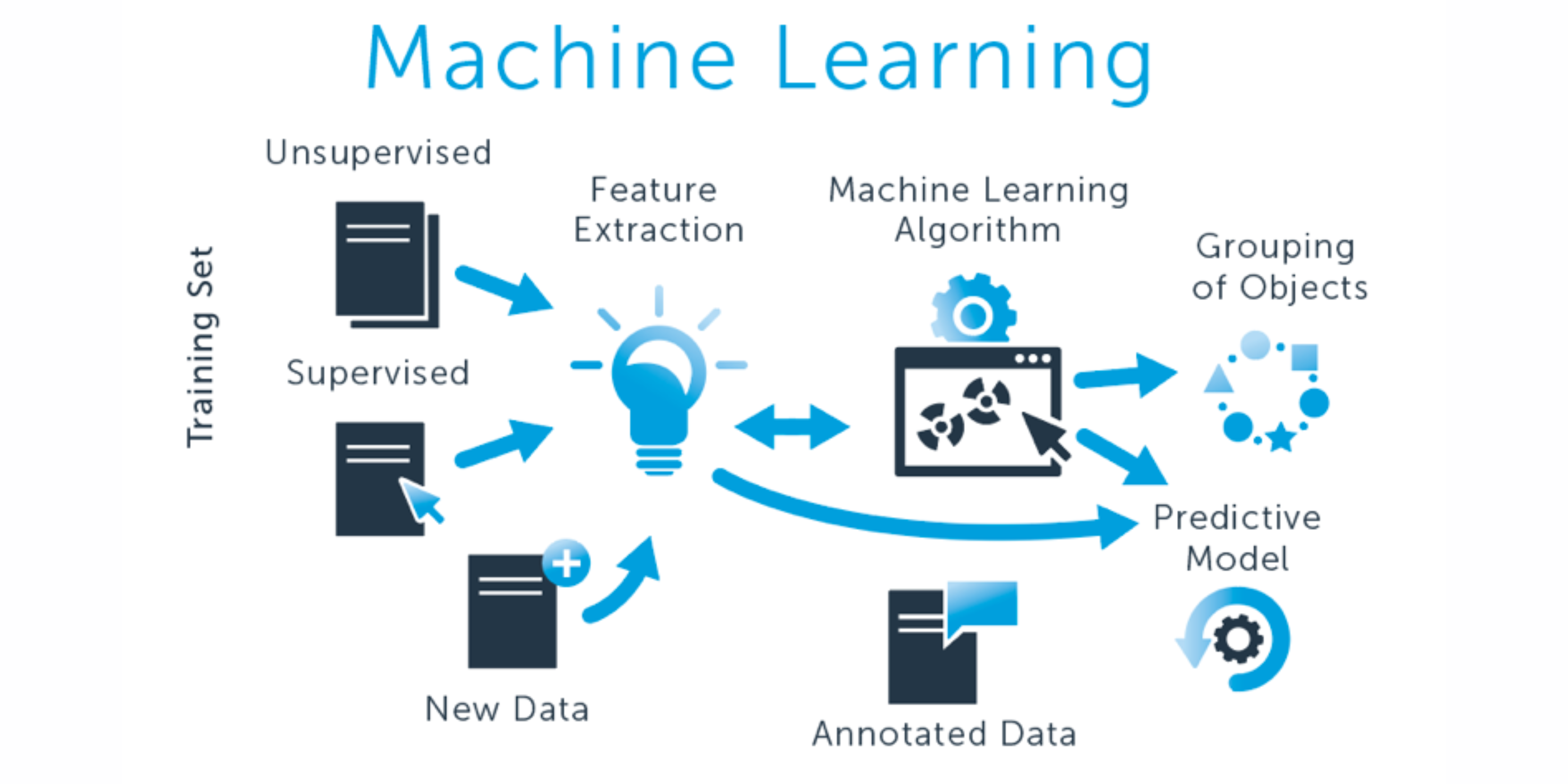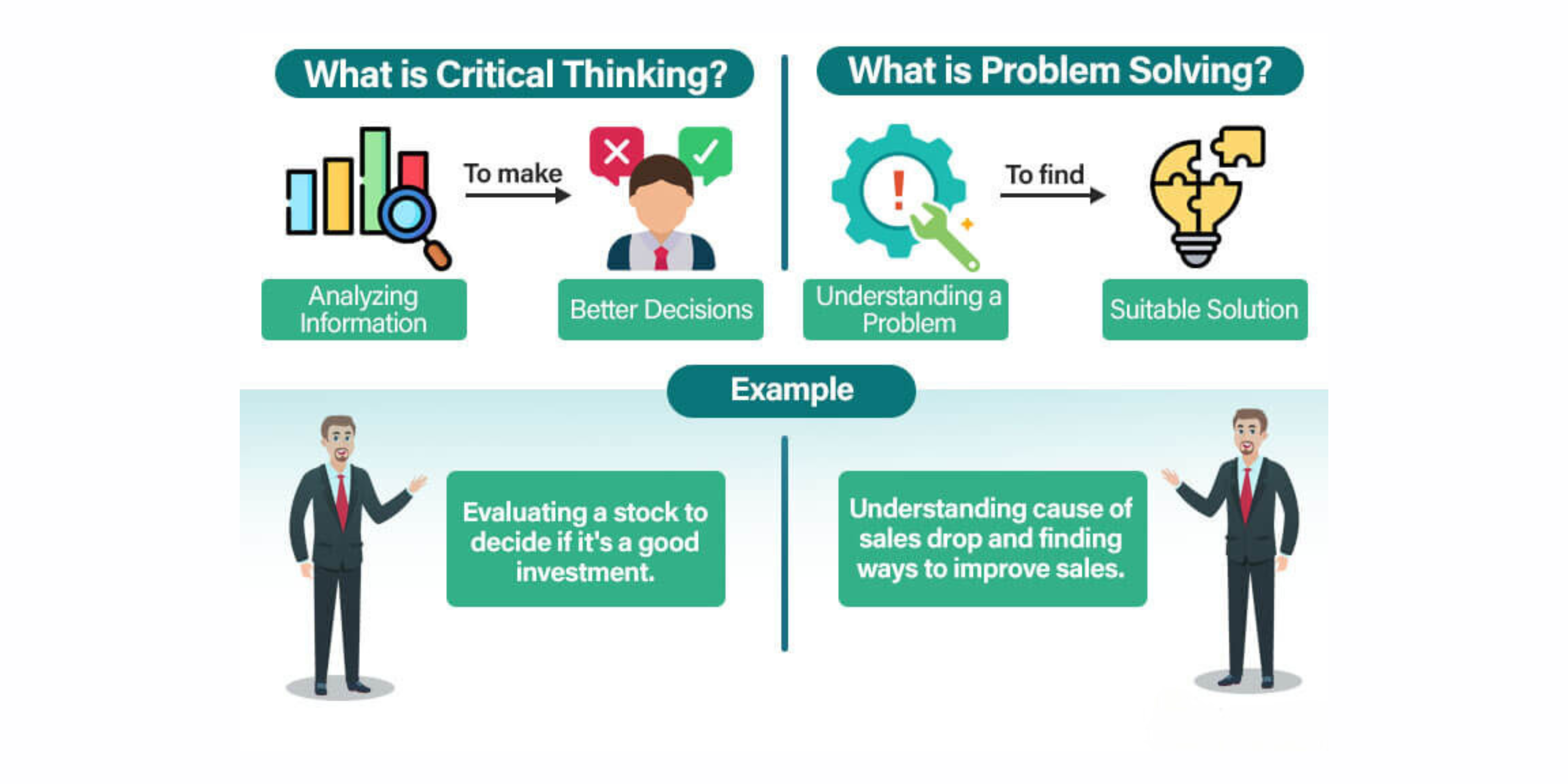Introduction
The AI era has revolutionized industries and transformed the way we live and work. From self-driving cars to personalized recommendations, artificial intelligence has become a powerful force in our lives. To thrive in this AI-dominated landscape, it is crucial to acquire the essential skills needed for success. In this comprehensive guide, we will take a deep dive into the 11 skills that are crucial for mastering the AI landscape.
Skill 1: Data Literacy
A. Definition and Significance: Data literacy is the cornerstone of AI. Understand its significance in making informed decisions powered by data.
B. Tips for Improving Data Literacy: Practical tips to enhance your data literacy and make meaningful contributions to data-driven decision-making.
C. Real-World Examples of Data-Driven Decision-Making: Explore instances where data literacy has transformed decision-making processes in various industries.

Data literacy is the ability to understand, analyze, and interpret data. In the AI era, data is the lifeblood of innovation, making data literacy a fundamental skill. It involves understanding data sources, data collection methods, and data manipulation techniques. With strong data literacy skills, professionals can make informed decisions, solve complex problems, and drive actionable insights.
To improve data literacy, professionals should familiarize themselves with statistical concepts, data visualization techniques, and data analysis tools. Online courses and workshops are great resources to enhance data literacy. Moreover, staying updated with the latest industry trends and real-world examples of data-driven decision-making can provide valuable insights into the practical application of data literacy in various domains.
Skill 2: Programming and Coding
A. The Role of Programming in the AI: Era Uncover the pivotal role programming plays in shaping the AI landscape.
B. Essential Programming Languages for AI: Discover the programming languages essential for AI and tips to master them.
C. Learning Resources and Tips for Mastering Coding Skills: Navigate through recommended learning resources and effective strategies to master coding skills for AI.
Programming and coding skills are at the core of AI development. Proficiency in programming languages allows professionals to build and train AI models, develop algorithms, and create AI-driven solutions. Python and R are two essential programming languages for AI, known for their simplicity and extensive libraries for machine learning.

To master programming and coding, aspiring AI professionals can leverage online coding platforms, participate in coding challenges, and collaborate with experienced developers. It is important to understand programming principles, such as object-oriented programming and algorithms. By consistently practicing coding exercises and exploring real-world AI applications, individuals can sharpen their programming skills and unlock their potential in the AI landscape.
Skill 3: Machine Learning Fundamentals
A. Understanding the Basics of Machine Learning : Demystify the basics of machine learning and its transformative potential.
B. Practical Applications and Impact on Various Industries: Explore real-world applications and the profound impact of machine learning across diverse industries.
C. Online Courses and Platforms for Learning Machine Learning: Guidance on online courses and platforms to kickstart your journey into mastering machine learning.
Machine learning, a subset of AI, focuses on creating algorithms that learn and make predictions or decisions without explicit programming. Understanding the basics of machine learning is crucial for AI professionals to develop intelligent systems that can adapt and improve over time.

Professionals should familiarize themselves with fundamental concepts such as supervised learning, unsupervised learning, and reinforcement learning. Exploring online courses and platforms dedicated to machine learning can provide a solid foundation. Additionally, learning from practical applications of machine learning in industries such as healthcare, finance, and marketing can inspire and motivate professionals to dive deeper into this field.
Skill 4: Critical Thinking and Problem-Solving
A. The Importance of Critical Thinking in AI: Understand why critical thinking is a crucial skill in the AI era.
B. Developing Problem-Solving Skills for AI Applications: Insights into developing problem-solving skills tailored for AI applications.
C. Case Studies Demonstrating Critical Thinking in AI Development: Examine case studies illustrating how critical thinking has driven successful AI development.
Critical thinking and problem-solving skills are invaluable in the development and application of AI. AI technologies often present complex challenges that require creative problem-solving and analytical thinking. Professionals equipped with these skills can identify potential pitfalls, develop innovative solutions, and optimize AI models.

To enhance critical thinking, professionals can engage in logical reasoning exercises, analyze case studies, and participate in brainstorming sessions. Collaboration with interdisciplinary teams fosters diverse perspectives and helps in tackling complex problems. Case studies showcasing critical thinking in AI can offer inspiration and a deeper understanding of the role critical thinking plays in AI development.
Skill 5: Communication Skills
A. Communicating AI Concepts to Non-Technical Stakeholders: Learn to effectively communicate complex AI concepts to non-technical stakeholders.
B. Collaborating with Interdisciplinary Teams: Navigate the intricacies of collaborating with interdisciplinary teams for successful AI projects.
C. Tips for Effective Communication in the AI Era: Practical tips for enhancing your communication skills in the context of AI.
In the AI era, effective communication skills are essential for engaging non-technical stakeholders, conveying complex AI concepts, and fostering collaboration. Clear and concise communication is key to bridge the gap between technical and non-technical professionals involved in AI projects.

Professionals can improve their communication skills by practicing clear and precise explanations of complex concepts, utilizing visual aids, and tailoring their communication style to suit the audience’s level of technical knowledge. Collaborating with interdisciplinary teams enhances communication skills by fostering an environment of effective knowledge sharing and understanding.
Skill 6: Cybersecurity Awareness
A. Risks and Challenges in the AI Era: Explore the risks and challenges associated with AI and the critical role of cybersecurity.
B. Importance of Cybersecurity in AI Applications: Understand why cybersecurity is paramount in the development and deployment of AI applications.
C. Best Practices for Maintaining AI System Security: Implement best practices to ensure the security of AI systems.
As AI becomes more pervasive, cybersecurity challenges arise. Professionals working with AI need to be aware of the potential risks and proactively implement measures to ensure the security of AI systems and data. Cybersecurity awareness is crucial to protect against data breaches, unauthorized access, and malicious attacks.

Understanding cybersecurity principles, staying updated on emerging threats, and implementing robust security measures are necessary to maintain the integrity and confidentiality of AI systems. Best practices include encryption, access control mechanisms, and regular vulnerability assessments. By prioritizing cybersecurity, professionals can ensure the trust and reliability of AI applications.
Skill 7: Adaptability and Continuous Learning
A. The Dynamic Nature of AI Technology: Appreciate the dynamic nature of AI and the need for adaptability.
B. Strategies for Staying Updated in the Rapidly Evolving Field: Strategies to stay abreast of the latest developments in the rapidly evolving field of AI.
C. Examples of Professionals Adapting to AI Advancements: Inspiring examples of professionals who have successfully adapted to AI advancements.
The AI landscape is dynamic and constantly evolving. Professionals need to embrace adaptability and commit to continuous learning to stay ahead in this ever-changing field. AI technologies, methodologies, and tools continue to evolve, and professionals must stay updated to remain competitive.

To adapt to AI advancements, professionals can join professional networks, attend conferences and meetups, and actively engage with AI communities. Embracing a growth mindset and seeking new learning opportunities enable individuals to navigate the dynamic AI landscape successfully. Examples of professionals who have embraced adaptability can inspire and guide others on their AI journey.
Skill 8: Ethical AI
A. Understanding the Ethical Implications of AI: Delve into the ethical considerations surrounding AI and its implications.
B. Implementing Ethical AI Practices: Guidance on implementing ethical AI practices in your projects.
C. Case Studies Highlighting Ethical Considerations in AI Development: Explore real-world case studies highlighting the ethical considerations in AI development.
With the increasing integration of AI into our lives, ethical considerations are paramount. Professionals working with AI must understand and address the ethical implications and potential biases associated with AI systems. Ethical AI ensures fairness, accountability, and transparency in AI development and deployment.

Professionals can deepen their understanding of ethical AI by exploring case studies, academic research, and ethical frameworks. Implementing ethical AI practices involves responsible data collection and usage, proactive identification and mitigation of biases, and regular ethical evaluations. By prioritizing ethics, professionals can build AI systems that serve the greater good and avoid unintended consequences.
Skill 9: Data Privacy
A. Importance of Protecting User Data in AI Applications: Understand the paramount importance of safeguarding user data in AI applications.
B. Regulatory Frameworks and Compliance: Navigate the regulatory landscape and ensure compliance with data protection regulations.
C. Tips for Ensuring Data Privacy in AI Projects: Practical tips for incorporating data privacy measures into your AI projects.
Data privacy is a critical concern in the AI landscape. Professionals must prioritize the protection of user data to maintain trust and comply with legal and regulatory requirements. Robust data privacy practices instill confidence in AI systems and ensure the responsible use of data.

Professionals should understand global data protection regulations, such as the General Data Protection Regulation (GDPR). Implementing privacy-enhancing technologies, maintaining user consent mechanisms, and adopting privacy-by-design principles are key steps for ensuring data privacy in AI projects. Professionals should develop a thorough understanding of data privacy principles and best practices to navigate the complexities of the AI landscape.
Skill 10: Domain Knowledge
A. The Role of Domain Expertise in AI Applications: Recognize the significance of domain expertise in the successful application of AI.
B. Tips for Acquiring and Applying Domain Knowledge: Strategies for acquiring and effectively applying domain knowledge in your AI projects.
C. Examples of Successful AI Projects Driven by Domain Expertise: Explore examples where domain expertise has been a driving force behind successful AI projects.
Domain knowledge refers to expertise in a specific industry or field. In the AI landscape, domain knowledge is crucial for understanding the unique challenges and opportunities within a given context. Professionals with domain expertise can leverage AI technologies to develop tailored solutions and make informed decisions.

To acquire domain knowledge, professionals can immerse themselves in industry-specific literature, attend domain-specific conferences, and engage with subject matter experts. Solving real-world problems within a specific domain deepens understanding and empowers professionals to drive meaningful AI-driven transformations. Successful AI projects often leverage domain expertise to deliver impactful results.
Skill 11: Emotional Intelligence
A. Recognizing the Human Impact of AI: Acknowledge the human aspect of AI and the need for emotional intelligence.
B. Developing Emotional Intelligence for AI Interactions: Tips on developing emotional intelligence for more meaningful AI interactions.
C. Case Studies Illustrating the Role of Emotional Intelligence in AI Adoption: Real-world case studies showcasing the positive impact of emotional intelligence in AI adoption.

Emotional intelligence refers to the ability to recognize, understand, and manage emotions in oneself and others. In the AI era, where human-computer interaction is increasingly prevalent, emotional intelligence plays a vital role in creating empathetic and user-centric AI systems.
Developing emotional intelligence involves self-reflection, active listening, and empathy-building exercises. Professionals can also benefit from studying case studies that highlight the impact of emotional intelligence in AI adoption. By considering the emotional aspects of AI, professionals can ensure AI systems are designed to positively impact users and create meaningful human-machine interactions.
Frequently Asked Questions
Navigating the AI era is crucial for staying relevant in a rapidly evolving technological landscape. Mastering the essential skills outlined in this guide empowers individuals to harness the potential of AI and ensures success in various professional domains.
Data literacy is the foundation of AI success. Understanding and interpreting data is essential for making informed decisions in the AI-driven world. This guide provides insights into the definition, significance, and practical tips for improving data literacy.
The role of programming in the AI era is pivotal. This guide offers information on essential programming languages, the significance of coding skills, and practical tips and resources to master programming for AI applications.
Domain expertise plays a significant role in the success of AI projects. This guide discusses the importance of domain knowledge, tips for acquiring and applying it, and provides examples of successful AI projects driven by domain expertise.
Emotional intelligence is a key factor in AI interactions. The guide explores its role in recognizing the human impact of AI, tips for developing emotional intelligence, and case studies illustrating its positive impact on AI adoption.
Conclusion
Mastering the AI landscape requires a diverse set of skills and a continuous commitment to learning and growth. The 11 essential skills covered in this guide provide a solid foundation for professionals seeking success in the AI era. By embracing data literacy, programming and coding, machine learning fundamentals, critical thinking, communication skills, cybersecurity awareness, adaptability, ethical AI, data privacy, domain knowledge, and emotional intelligence, individuals can navigate the dynamic AI landscape with confidence. Remember, in this ever-changing field, continuous skill development is key to staying ahead and making a meaningful impact.
